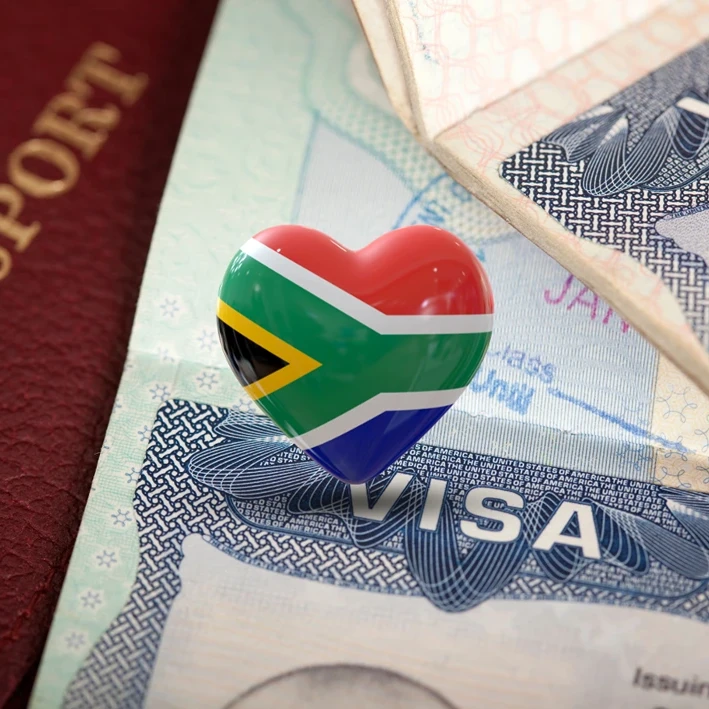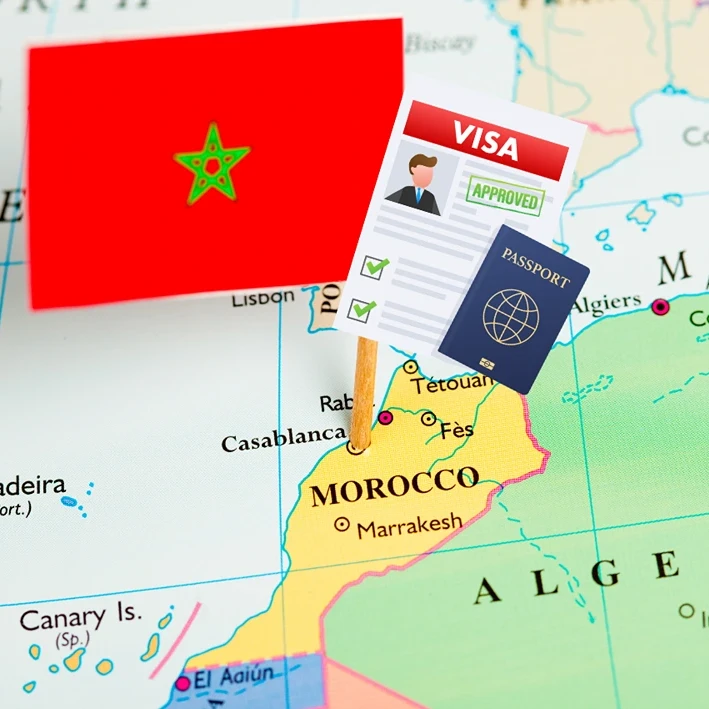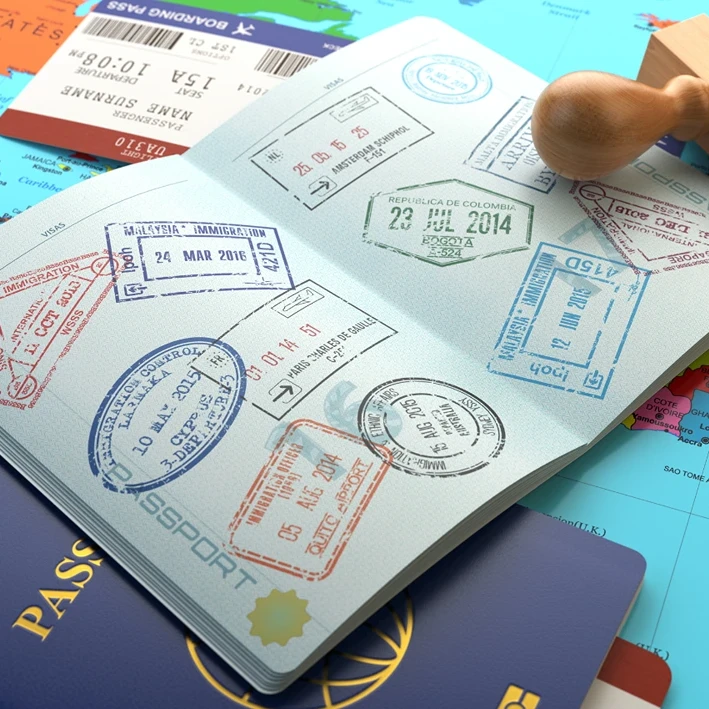Navigating the intricate web of visa requirements for Thailand can often feel as complex as solving a puzzle without the picture on the box. Yet, it is the essential first step for anyone planning a visit to this captivating Southeast Asian nation. Securing the right visa type is crucial for ensuring a smooth and enjoyable experience, whether you’re visiting for leisure, business, or a longer stay. This article lays out all you need to know about the various visa options, helping you match your travel purpose with the correct visa, and guiding you through the application process for this vibrant destination.
Table of Contents
ToggleUnderstanding Visa Types for Thailand
Selecting the appropriate visa type when planning a trip to Thailand is crucial for compliance with entry regulations and ensuring a smooth travel experience. Each visa caters to specific needs, ranging from short-term tourism to long-term residency for business or education. Misidentifying the visa requirements for Thailand can lead to complications, such as denied entry or fines. Therefore, understanding the various visa options is essential for travelers to align their purposes with the correct documentation, enhancing their stay and avoiding potential legal issues.
- Tourist Visa
- Medical Visa
- Transit Visa
- Business Visa (Non-Immigrant B)
- Education Visa (Non-Immigrant ED)
- Research Visa (Non-Immigrant RS)
The Tourist Visa allows for short-term stays primarily for leisure, with durations typically up to 60 days. The Medical Visa is designed for those seeking medical treatment in Thailand, allowing for necessary time to undergo procedures and recovery. For travelers passing through Thailand to another destination, the Transit Visa provides the needed clearance. Non-Immigrant visas serve more specific purposes: the Business Visa (B) is for conducting business activities, the Education Visa (ED) supports students enrolled in recognized educational programs, and the Research Visa (RS) is for academics and researchers engaging in scholarly activities. Each visa type has distinct eligibility criteria and documentation requirements tailored to the purpose of the visit.
Tourist Visa Application Process for Thailand
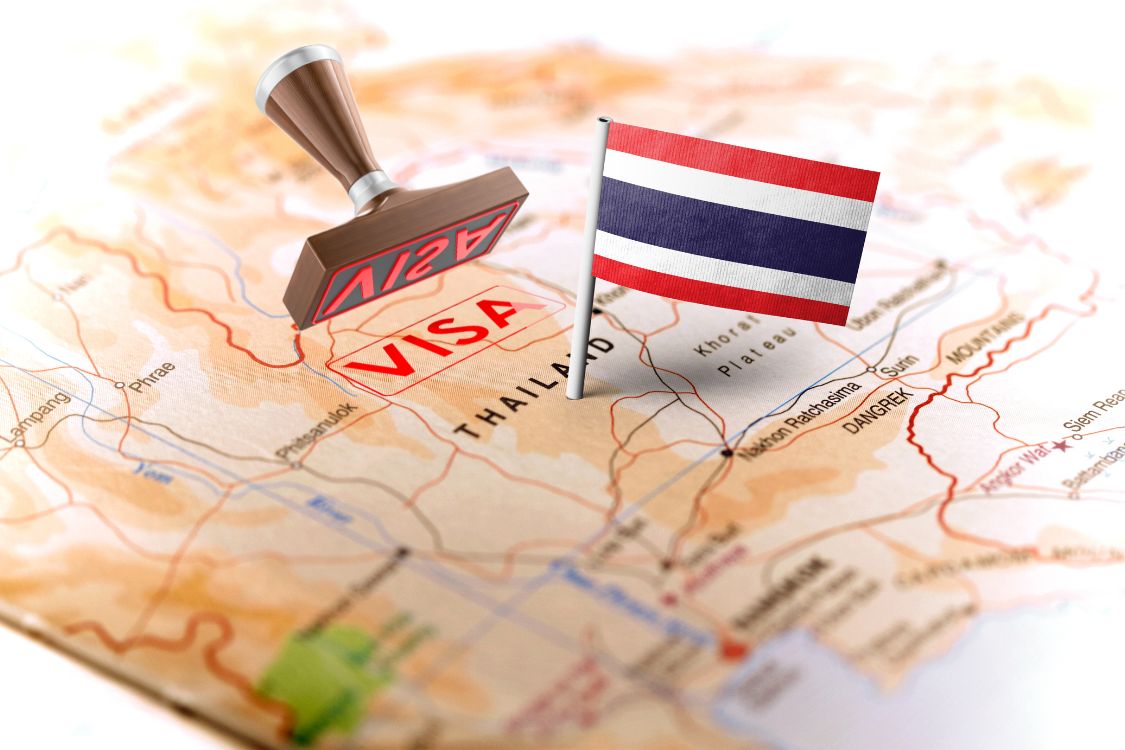
Securing a tourist visa for Thailand involves meticulous preparation of necessary documents to streamline the application process. Essential documentation includes a completed visa application form, recent passport-sized photographs, a passport valid for at least six months, and proof of sufficient financial means for the duration of the stay. Additional requirements might involve a confirmed flight itinerary and accommodation details. Each Thai embassy or consulate may have specific document requirements, so verifying the local prerequisites is crucial. Failure to present the correct documents can lead to delays or rejection of the application, emphasizing the importance of preparedness.
Costs and Fees for a Tourist Visa
The cost of a Thai Tourist Visa varies based on the applicant’s nationality and the visa type selected. Fees can range significantly; for instance, a Single-Entry Tourist Visa might cost around $30 to $50, while a Multiple-Entry Tourist Visa could range from $150 to $250. These fees are subject to change and may include additional service charges or processing fees levied by the local embassy or consulate. It is advisable for applicants to check with their nearest Thai diplomatic mission for the most up-to-date fee schedule and payment methods.
Applying for a tourist visa requires applicants to submit their documents at a Thai embassy or consulate, either in person or via their online portal if available. The application process typically includes filling out the visa form, paying the associated fees, and scheduling an appointment for submission if necessary. Processing times can range from two to ten business days, depending on the application method and location. Tracking the application status online, when possible, can help applicants stay informed about their visa’s progress, ensuring timely collection upon approval.
Visa on Arrival and Visa-Free Entry to Thailand
For travelers looking to visit Thailand, understanding the Visa on Arrival process and visa-free entry options is crucial. Visa on Arrival is available to citizens from 31 countries, allowing a stay of up to 15 days. This option is ideal for short-term visits and requires travelers to meet specific requirements: a valid passport with at least six months remaining, a passport-sized photograph, proof of onward travel, and sufficient funds (at least 10,000 Thai Baht per person). There’s a fee of 2,000 Thai Baht, payable upon arrival. The visa is issued at designated entry points, streamlining the process for eligible travelers.
- United States
- Canada
- United Kingdom
- Australia
- Germany
The Thai visa exemption program further extends convenience by allowing citizens from 93 countries to enter Thailand without a visa for up to 60 days for tourism or business purposes. Documentation for both Visa on Arrival and visa-free entry involves ensuring a valid passport, confirming onward travel plans, and, for some, demonstrating financial means. While visa-free entry eliminates the need for prior application, travelers must still adhere to entry requirements upon arrival. It’s essential to verify eligibility and prepare necessary documentation beforehand to ensure a seamless entry experience.
Non-Immigrant and Long-Term Visas for Thailand
Non-immigrant visas in Thailand cater to individuals with specific intentions beyond tourism, such as business, education, and professional activities. What is a non-immigrant visa in Thailand? It is a visa category that facilitates longer stays and specialized activities, requiring applicants to meet specific criteria and submit relevant documentation. The 90-Day Non-Immigrant Visa, for instance, supports business and educational endeavors, granting an initial stay of 90 days. Eligibility often necessitates proof of employment, enrollment in an educational institution, or a formal invitation from a Thai entity. Applicants must provide documentation such as employment letters, university admissions, or other verifiable credentials to substantiate their visa request. This visa type can be extended based on the purpose and need of the applicant, often requiring additional paperwork and fees.
Long-term visa options, such as the Thai Elite Visa, cater to those seeking extended residency for leisure or professional purposes. What does the Thai Elite Visa offer? It provides a range of privileges, including residency periods from 5 to 20 years, depending on the package chosen. Designed for affluent individuals, this visa requires a substantial financial commitment, with fees varying according to the selected duration. Benefits include expedited immigration clearance, access to exclusive services, and multiple entry advantages. Another long-term option is the Retirement Visa, suitable for individuals over 50. It necessitates proof of financial security, such as a stable income or significant savings, and valid health insurance. Both the Thai Elite and Retirement Visas aim to facilitate extended stays with minimal bureaucratic hurdles, enhancing the lifestyle of expatriates in Thailand.
| Visa Type | Duration |
|---|---|
| Non-Immigrant | 90 days |
| Thai Elite | 5 to 20 years |
| Retirement | 1 year, extendable |
| Education | Up to 1 year |
Navigating the application procedures for these visas involves understanding the distinct requirements and preparing comprehensive documentation. Non-immigrant and long-term visas generally require applicants to submit a detailed application form, passport-sized photographs, a valid passport, and any supporting documents specific to their visa type. For instance, business visa applicants must submit letters from their employers, while those applying for an education visa must provide proof of enrollment. The Thai government often updates visa policies, so staying informed through official channels is crucial. Engaging with visa agencies can also prove beneficial, offering expert guidance and assistance in navigating the complex application landscape. This proactive approach ensures compliance with Thai immigration laws and facilitates a smoother transition to life in Thailand.
COVID-19 and Recent Changes to Thailand Visa Policies
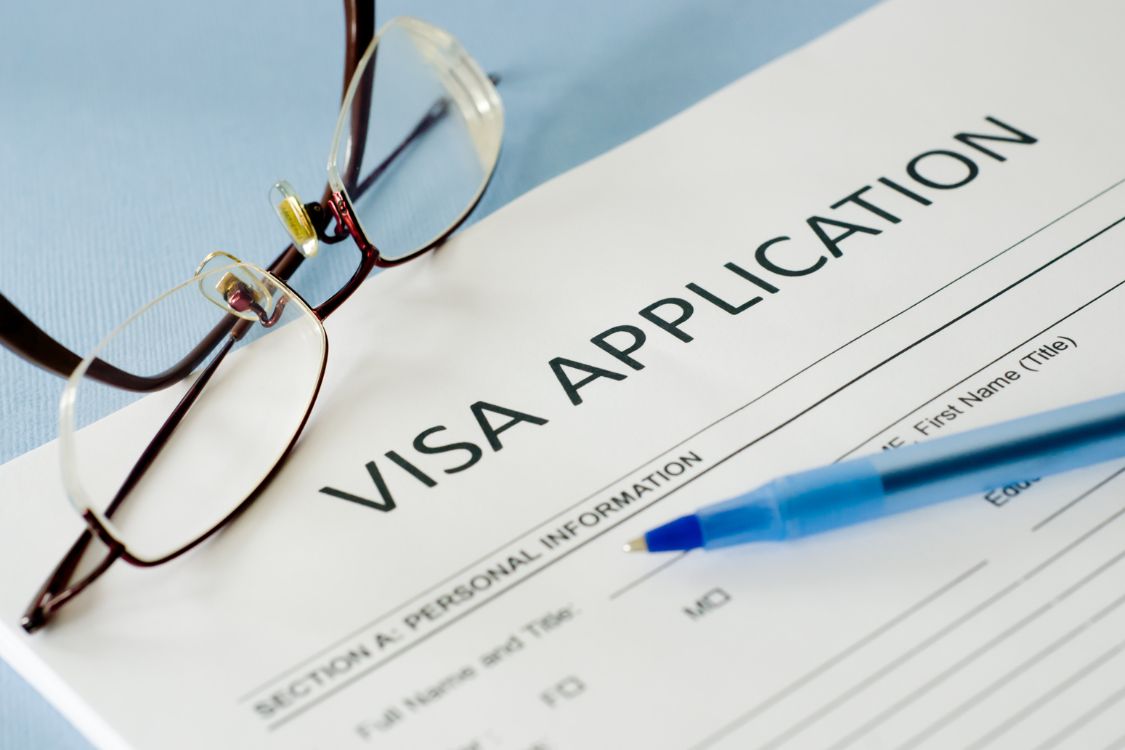
The COVID-19 pandemic has significantly affected travel to Thailand, leading to shifts in visa policies and travel restrictions. Initially, stringent entry requirements, quarantine mandates, and health certifications were imposed to curb the virus’s spread. Over time, these measures have evolved, balancing public health concerns with economic recovery. As of 2025, travelers must stay informed about Thailand travel restrictions, which can alter with the pandemic’s progression. Specific requirements may include proof of vaccination, negative COVID-19 test results, and adherence to local health protocols. Keeping abreast of the latest updates is crucial for compliance and a smooth entry.
- Introduction of electronic visa application processes.
- Updated health insurance requirements.
- Changes in visa extension procedures.
To check for updates on Thailand visa policies, travelers should regularly visit official Thai government websites or consult the nearest Thai embassy or consulate. These resources provide the most accurate and current information on entry requirements and visa changes. Additionally, subscribing to travel alerts and advisories from reputable sources can help ensure travelers are aware of any sudden policy shifts. Engaging with professional visa services can also offer valuable guidance in navigating the complexities of the visa process, helping travelers remain compliant with new regulations.
Extending Your Stay and Visa Renewal in Thailand
Understanding how to extend a visa is crucial for travelers wishing to prolong their stay in Thailand. The standard tourist visa allows an initial stay of up to 60 days, which can be extended by an additional 30 days. This extension is processed at the local Immigration Office, ensuring that visitors remain compliant with Thai immigration laws. It is essential for travelers to be aware of the extension procedures to avoid overstaying, which can lead to fines or entry bans. With the help of visa agencies, the application process can be smoother, providing expertise and convenience, albeit with additional service fees.
- Visit the local Immigration Office.
- Complete and submit an extension form.
- Pay the extension fee.
- Receive an extension stamp in your passport.
Renewing a visa in Thailand involves a separate process, often requiring travelers to exit and re-enter the country, depending on their visa type. For long-term visas, such as the Retirement or Non-Immigrant visas, renewal might necessitate demonstrating continued eligibility, such as proof of financial means or ongoing educational enrollment. The renewal process may vary based on the visa category, and engaging with Thai immigration authorities or professional visa services can ensure compliance with the latest regulations. Staying informed about renewal requirements helps maintain legal residency and uninterrupted stay in Thailand.
Final Words
Navigating the visa requirements for Thailand involves understanding various options, from tourist to non-immigrant visas. Each type caters to specific needs, whether short-term travel or long-term residency. Preparing necessary documents and being aware of costs ensures a streamlined application process.
The visa on arrival and the visa-free entry offer convenient travel solutions, while long-term visas like the Thai Elite Visa suit those seeking extended stays. Recent adjustments due to COVID-19 demand attention to detail.
By staying informed and proactive, travelers can enjoy a smooth transition to exploring or settling in Thailand.
FAQ
Q: Do I need a visa to visit Thailand?
A: Most travelers need a visa to enter Thailand unless they are from a visa-exempt country. Tourist visas are common for short stays.
Q: How long can I stay in Thailand without a visa?
A: Visitors from visa-exempt countries can stay up to 30 days without a visa. Check if your country qualifies for visa exemption.
Q: Can I stay in Thailand for 30 days without a visa?
A: Yes, citizens from several countries can enter Thailand visa-free for up to 30 days, depending on the country of origin.
Q: How much is a Thai visa for US citizens?
A: The cost varies depending on the type of visa. A single-entry tourist visa typically costs around $40 to $50.
Q: Which countries can enter Thailand without a visa?
A: Countries like the United States, United Kingdom, Canada, Australia, and most EU countries are typically exempt for 30 days. Always verify current exemptions.
Q: What are the Thailand tourist visa requirements?
A: Requirements include a valid passport, a completed application form, a passport-sized photo, proof of accommodation, and a return ticket.
Q: Do we need a visa for Thailand from India?
A: Indian citizens require a visa to enter Thailand. However, they may apply for a Visa on Arrival for short stays.
Q: Is there a visa-free Thailand option for Indian citizens?
A: Currently, Indian citizens need a visa for Thailand but can apply for a Visa on Arrival for up to 15 days.
Q: What are Thailand’s entry requirements for U.S. citizens?
A: U.S. citizens can enter Thailand visa-free for up to 30 days with a valid passport and proof of onward travel.
Q: What is a 90-day tourist visa for Thailand?
A: The 90-day Non-Immigrant Visa allows an extended stay, often used for purposes like business or education. Additional documentation is required.
Hazel Wall is a passionate traveler, writer, and explorer dedicated to sharing her experiences and insights with fellow adventurers. With a background in journalism and a deep love for discovering new cultures, Hazel has journeyed across continents, immersing herself in diverse landscapes and traditions.



